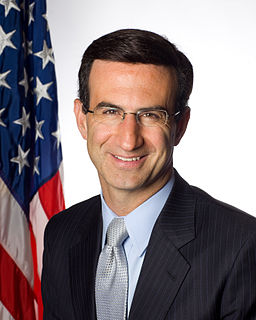A Quote by Robert Bellarmine
There is no one who is without faults, and who is not in some way a burden to others, whether he is a superior or a subject, an old man or a young one, a scholar or a dunce.
Related Quotes
Yet each man kills the thing he loves, By each let this be heard, Some do it with a bitter look, Some with a flattering word, The coward does it with a kiss, The brave man with a sword! Some kill their love when they are young, And some when they are old; Some strangle with the hands of Lust, Some with the hands of Gold: The kindest use a knife, because The dead so soon grow cold. Some love too little, some too long, Some sell, and others buy; Some do the deed with many tears, And some without a sigh: For each man kills the thing he loves, Yet each man does not die.
When an old man and a young man work together, it can make an ugly sight or a pretty one, depending on who's in charge. If the young man's in charge or won't let the old man take over, the young man's brute strength becomes destructive and inefficient, and the old man's intelligence, out of frustration, grows cruel and inefficient. Sometimes the old man forgets that he is old and tries to compete with the young man's strength, and then it's a sad sight. Or the young man forgets that he is young and argues with the old man about how to do the work, and that's a sad sight, too.
I have young kids. The fiscal burden that will be imposed on them is going to depend primarily on whether we tackle this looming problem in our health care system - with rising costs that don't seem, by the way, to be necessarily associated with higher quality. That is the key burden that they will face.
I believe what really happens in history is this: the old man is always wrong; and the young people are always wrong about what is wrong with him. The practical form it takes is this: that, while the old man may stand by some stupid custom, the young man always attacks it with some theory that turns out to be equally stupid.
When you are young, you think that the old lament the deterioration of life because this makes it easier for them to die without regret. When you are old, you become impatient with the way in which the young applaud the most insignificant improvements … while remaining heedless of the world’s barbarism. I don’t say things have got worse; I merely say the young wouldn’t notice if they had. The old times were good because then we were young, and ignorant of how ignorant the young can be.
Before one blames, one should always find out whether one cannot excuse. To discover little faults has been always the particularity of such brains that are a little or not at all above the average. The superior ones keep quiet or say something against the whole and the great minds transform without blaming.
We all learn best in our own ways. Some people do better studying one subject at a time, while some do better studying three things at once. Some people do best studying in structured, linear way, while others do best jumping around, surrounding a subject rather than traversing it. Some people prefer to learn by manipulating models, and others by reading.











































